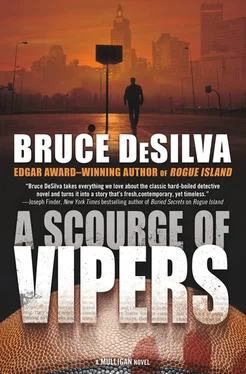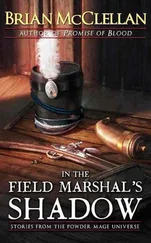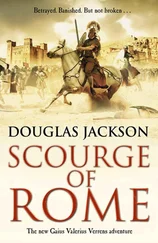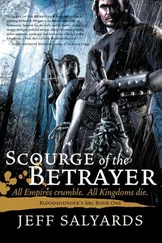“We get eight grand for a full page, is that right?”
“And ten thousand for the Sunday edition,” Martin answered.
“How long were they planning to continue the campaign?”
“At least another two weeks,” Martin said. “After that, I’m not sure.”
“So this lack of communication between news and advertising will cost us”-Freeley pulled an iPhone from his pocket and worked the calculator-“at a minimum, we’re talking one hundred and sixteen thousand dollars.”
“Only a hundred thousand, actually,” Martin said. “ The Dispatch doesn’t publish on Saturdays.”
“Only?” Beauregard said. He raised an eyebrow and turned to Freeley. “Did that fucking toad actually say only a hundred thousand dollars?”
Martin slumped in his chair and tried to make himself smaller. Freeley started to ask another question, but Beauregard raised his hand for silence, wanting the enormity of the dollar figure to sink in.
“Okay, then,” he finally said. “Let’s turn to our legal department’s concerns about this piece-of-shit story.”
Todd Grissom, the corporate lawyer, opened his briefcase, pulled out his copy of The Sunday Dispatch, and laid it gently on the table. I noticed that he’d used a red pen to fill the front-page margins with angry notes.
“Why didn’t you see fit to have this story vetted by legal, Mr. Twisdale?” he asked. “It obviously presents a number of significant libel risks.”
“Mr. Mulligan and I went over it all line by line, and we determined that it does not,” Twisdale said. “Therefore, I decided it would be prudent to save the company unnecessary legal expenditures.”
“You think you possess the legal expertise to make such a determination?” Grissom asked.
“Sure he does,” I butted in.
Twisdale gave me another shot in the ribs. I ignored it.
“The Alfanos are both dead,” I said, “and Mario Zerilli’s reputation as a thug was already public knowledge. The only other people the story potentially libels are the New Jersey gambling interests, but that phrase doesn’t identify them. It’s more than vague enough to protect us from legal action.”
“Do you have a law degree, Mr. Mulligan?” Freeley said.
“I’ve been writing investigative stories in Providence for more than twenty years, Mr. Freeley. I bet I know more about Rhode Island libel law than you do.”
Freeley was briefly taken aback.
“Well,” he huffed, “I do concur with your assessment of our legal exposure, Mr. Mulligan. However, company policy requires that stories of this nature must be run past the legal department. In the future, I trust the two of you will follow the proper procedure.”
Beauregard whacked his palm on the table. The sound made Martin flinch.
“There ain’t gonna to be any more stories like this,” he said. “No more running around pretending you’re the cast of Law and Order . Ya get me?”
“Now that was inspiring,” I said. “I think Ben Bradlee once gave the same speech to Woodward and Bernstein.”
For that, Joe Pesci would have put a bullet in my brain. I figured Beauregard would fire me on the spot. Instead, he laughed out loud.
“You might have a future in stand-up yourself,” he said. “But you sure as hell ain’t got one in the newspaper business.”
“Nobody does,” I said.
Beauregard nodded in agreement. “On my way in,” he said, “I saw your name on one of them Pulitzer medals. I think I saw it on a Polk Award, too. You have my respect for that, Mr. Mulligan. But the economics of the news business have changed, and we gotta change with it. If Ben Bradlee himself walked through that fuckin’ door and begged for a job, I wouldn’t hire the bastard. And if Woodward and Bernstein were working here, I’d fire both their asses. The age of newspaper heroics is over. Today, the only job of the news department is to fill the holes between the ads. Do I myself clear?”
I didn’t say anything.
“Mr. Twisdale?” Beauregard said.
“Yes, sir. I understand.”
“Okay, then,” he said. “One last thing.” He picked up his copy of the Sunday paper and waved it in Twisdale’s face. “I’m told you never sent this story to our copy center. Is that right?”
“It is.”
“Why the fuck not?”
“Copyediting this story properly required an extensive knowledge of Rhode Island law and politics. That is something the professionals at our copy center do not possess. Under the circumstances, I thought it best to do the job myself.”
“You’re the managing editor, pal,” Beauregard said. “I don’t pay you to be a goddamned copy editor.”
“I understand, sir.”
I should have left it alone, but as usual, I couldn’t help myself.
“The clowns you are paying to be goddamned copy editors are useless,” I said. “They edit in more errors than they fix.”
“Oh, is that so?” Beauregard said.
“Yeah, it is. If you’re hankering to recoup the hundred grand that’s got your jockstrap in a bunch, the copy center would be the place to start.”
“I’ll take that under advisement, Mr. Mulligan. Meanwhile, I believe we can realize some immediate savings. When I leave this room, I’m taking somebody’s head with me.”
He swept his eyes across the three of us, hoping to make us squirm. Only the ad director did.
“Mr. Martin,” Beauregard said, “get the fuck out and don’t come back. Security will pack up any personal crap in your office and ship it to your home address.”
“Why do you suppose he singled out Martin and not me?” Twisdale asked.
“Because Martin was a nervous wreck,” I said. “The poor bastard couldn’t stop sweating. You stayed cool, and I think Beauregard respected that.”
“I came off as cool?”
“You did.”
“Inside, I was shaking.”
He rested his elbows on his desk and clasped his hands in front of him.
“So we live to fight another day,” he said.
“We do. Should I tell you where I’m going next with this investigation, or would you prefer that I keep you in the dark?”
“You heard Beauregard. No more stories like this.”
“Yeah, but ‘like this’ is pretty vague,” I said. “That gives us some wiggle room, don’t you think?”
“No, I don’t.”
I chose to ignore that and pressed on.
“We know that Pichardo, Longo, and Templeton refused the bribes,” I said, “but I’ll bet at least a few of our thirty-eight state senators and seventy-five House members took money from the Alfanos. I want to find out who they are.”
“Oh, hell no. You want to go through another meeting with Beauregard the Destroyer? Next time, he’ll fire the both of us.”
“Until he does,” I said, “I’m gonna keep doing my job. How ’bout you?”
Twisdale folded his arms across his chest. “Easy for you to say, but I’ve still got a wife and kids to support.” He paused, self-interest and self-respect at war on his face. “But just for the sake of argument, how would you propose to go after this?”
“Most legislators are successful lawyers and businessmen,” I said, “so if they suddenly started installing swimming pools or buying new luxury cars, no one would think anything of it. But about two dozen of them live paycheck to paycheck. Lovellette paints houses for a living. Parkinson is a sixth-grade teacher. Franklin is a prison guard. Berube got laid off by the Post Office last March and hasn’t worked since. For people like them, twenty grand would be hard to resist.”
“If they were smart,” Twisdale said, “they’d sit on the dirty cash for a few years and wait till the heat dies down.”
Читать дальше












